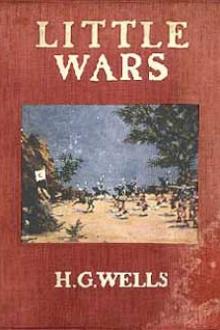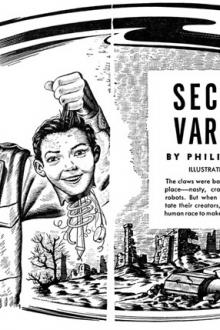Genre War. Page - 6

ely to befighting and much trouble as the result.'"
"Is that all the Book says?" asked Ozma.
"Every word," said Dorothy, and Ozma and Glinda bothlooked at the Record and seemed surprised andperplexed.
"Tell me, Glinda," said Ozma, "who are theFlatheads?"
"I cannot, your Majesty," confessed the Sorceress."Until now I never have heard of them, nor have I everheard the Skeezers mentioned. In the faraway corners ofOz are hidden many curious tribes of people, and thosewho never leave their own countries and never arevisited by those from our favored part of Oz, naturallyare unknown to me. However, if you so desire, I canlearn through my arts of sorcery something of theSkeezers and the Flatheads."
"I wish you would," answered Ozma seriously. "Yousee, Glinda, if these are Oz people they are mysubjects and I cannot allow any wars or troubles in theLand I rule, if I can possibly help it."
"Very well, your Majesty," said the Sorceress, "Iwill try to get some information to guide you. P

nd and wife. We infantrymen must bring the child into the world when a victory is to be born. The artillery has only the pleasure, just like a man's part in love. It is not until after the child has been baptized that he comes strutting out proudly. Am I not right, Captain?" he asked, appealing to the cavalry officer. "You are an equestrian on foot now, too."
The captain boomed his assent. In his summary view, members of the Reichstag who refused to vote enough money for the military, Socialists, pacifists, all men, in brief, who lectured or wrote or spoke superfluous stuff and lived by their brains belonged in the same category as the Philosopher. They were all "bookworms."
"Yes, indeed," he said in his voice hoarse from shouting commands. "A philosopher like our friend here is just the right person for the artillery. Nothing to do but wait around on the top of a hill and look on. If only they don't shoot up our own men! It is easy enough to dispose of the fellows on the other side, in front of

er. It struck at the root of all things.
'But I do mind,' objected Jelliffe. 'It's most important. A lot of money hangs on it. We've got a sweepstake on in the company, the holder of the winning name to take the entire receipts. Come on. Who is he?'
Henry rose and made for the door. His feelings were too deep for words. Even a minor detective has his professional pride; and the knowledge that his espionage is being made the basis of sweepstakes by his quarry cuts this to the quick.
'Here, don't go! Where are you going?'
'Back to London,' said Henry, bitterly. 'It's a lot of good my staying here now, isn't it?'
'I should say it was--to me. Don't be in a hurry. You're thinking that, now we know all about you, your utility as a sleuth has waned to some extent. Is that it?'
'Well?'
'Well, why worry? What does it matter to you? You don't get paid by results, do you? Your boss said "Trail along." Well, do it, then. I should hate to lose you. I don't suppose you know

r a detachment shall beconsidered to be isolated when there is less than half its number of itsown side within a move of it. Now, in actual civilised warfare smalldetached bodies do not sell their lives dearly; a considerably largerforce is able to make them prisoners without difficulty. Accordingly wedecided that if a blue force, for example, has one or more men isolated,and a red force of at least double the strength of this isolateddetachment moves up to contact with it, the blue men will be consideredto be prisoners.
That seemed fair; but so desperate is the courage and devotion of leadsoldiers, that it came to this, that any small force that got or seemedlikely to get isolated and caught by a superior force instead of waitingto be taken prisoners, dashed at its possible captors and slew themman for man. It was manifestly unreasonable to permit this. And inconsidering how best to prevent such inhuman heroisms, we were remindedof another frequent incident in our battles that also erred tow

ction?--notfor publication, of course."
"I should suppose not," said Ridley significantly. "For a Divine hewas--remarkably free."
"The Pump in Neville's Row, for example?" enquired Mr. Pepper.
"Precisely," said Ambrose.
Each of the ladies, being after the fashion of their sex, highly trainedin promoting men's talk without listening to it, could think--about theeducation of children, about the use of fog sirens in an opera--withoutbetraying herself. Only it struck Helen that Rachel was perhaps toostill for a hostess, and that she might have done something with herhands.
"Perhaps--?" she said at length, upon which they rose and left, vaguelyto the surprise of the gentlemen, who had either thought them attentiveor had forgotten their presence.
"Ah, one could tell strange stories of the old days," they heard Ridleysay, as he sank into his chair again. Glancing back, at the doorway,they saw Mr. Pepper as though he had suddenly loosened his clothes, andhad become a vivacious and malici

point.
And all the while, never a sound of firing, never a sight of the red and blue of the French uniforms. The war might have been two hundred miles away!
Meanwhile Tommy on his marches was discovering things. Wonder of wonders, this curious people called "baccy" tabac! "And if yer wants a bit of bread yer awsks for pain, strewth!" He loved to hear the French gabble to him in their excited way; he never thought that reciprocally his talk was just as funny. The French matches earned unprintable names. But on the whole he admired sunny France with its squares of golden corn and vegetables, and when he passed a painted Crucifix with its cluster of flowering graves, he would say: "Golly, Bill, ain't it pretty? We oughter 'ave them at 'ome, yer know." And of course he kept on saying what he was going to do with "Kayser Bill."
One night after the evening meal, the men of the Company gave a little concert outside the mill. The flower-scented twilight was fragrantly beautiful, and the mill stre

given us for barracks; there, on the bare stone floor, in close-packed promiscuity, too tired to react to filth and vermin, we spent our first night as soldiers of the Sultan, while the milky moonlight streamed in through every chink and aperture, and bats flitted round the vaulting above the snoring carcasses of the recruits.
Next morning we were routed out at five. The black depths of the well in the center of the mosque courtyard provided doubtful water for washing, bathing, and drinking; then came breakfast,--our first government meal,--consisting, simply enough, of boiled rice, which was ladled out into tin wash-basins holding rations for ten men. In true Eastern fashion we squatted down round the basin and dug into the rice with our fingers. At first I was rather upset by this sort of table manners, and for some time I ate with my eyes fixed on my own portion, to avoid seeing the Arabs, who fill the palms of their hands with rice, pat it into a ball and cram it into their mouths just so, the bol

The congregation of St. John's assembled on a Sunday morning as befitted its importance and dignity. Families arrived, or arrived by two or three representatives, and proceeded with due solemnity to their private pews. No one, of course, exchanged greetings on the way up the church, but every lady became aware, not only of the other ladies present, but of what each wore. A sidesman, with an air of portentous gravity, as one who, in opening doors, performed an office more on behalf of the Deity than the worshippers, was usually at hand to usher the party in. Once there, there was some stir of orderly bustle: kneelers were distributed according to requirements, books sorted out after the solemn unlocking of the little box that contained them, sticks and hats safely stowed away. These duties performed, paterfamilias cast one penetrating glance round the church, and leaned gracefully forward with a kind of circular motion. Having suitably addressed Almighty God (it is to be supposed), he would lean ba

"_--Heedless and careless, still the world wags on,
And leaves me broken ... Oh, my son! my son!_"
Yet--think of this!--
Yea, rather think on this!--
He died as few men get the chance to die,--
Fighting to save a world's morality.
He died the noblest death a man may die,
Fighting for God, and Right, and Liberty;--
And such a death is Immortality.
"_He died unnoticed in the muddy trench._"
Nay,--God was with him, and he did not blench;
Filled him with holy fires that nought could quench,
And when He saw his work below was done,
He gently called to him,--"_My son! My son!
I need thee for a greater work than this.
Thy faith, thy zeal, thy fine activities
Are worthy of My larger liberties;_"--
--Then drew him with the hand of welcoming grace,
And, side by side, they climbed the heavenly ways.
LORD, SAVE THEIR SOULS ALIVE!
Lord, save their souls alive!
And--for the rest,--
We leave it all to Thee

. He wore a faded blue sweater, ragged with dirt, and short pants. His hair was long and matted. Brown hair. It hung over his face and around his ears. He held something in his arms.
"What's that you have?" Hendricks said sharply.
The boy held it out. It was a toy, a bear. A teddy bear. The boy's eyes were large, but without expression.
Hendricks relaxed. "I don't want it. Keep it."
The boy hugged the bear again.
"Where do you live?" Hendricks said.
"In there."
"The ruins?"
"Yes."
"Underground?"
"Yes."
"How many are there?"
"How--how many?"
"How many of you. How big's your settlement?"
The boy did not answer.
Hendricks frowned. "You're not all by yourself, are you?"
The boy nodded.
"How do you stay alive?"
"There's food."
"What kind of food?"
"Different."
Hendricks studied him. "How old are you?"
"Thirteen."
* * * * *
It wasn't possible. Or was